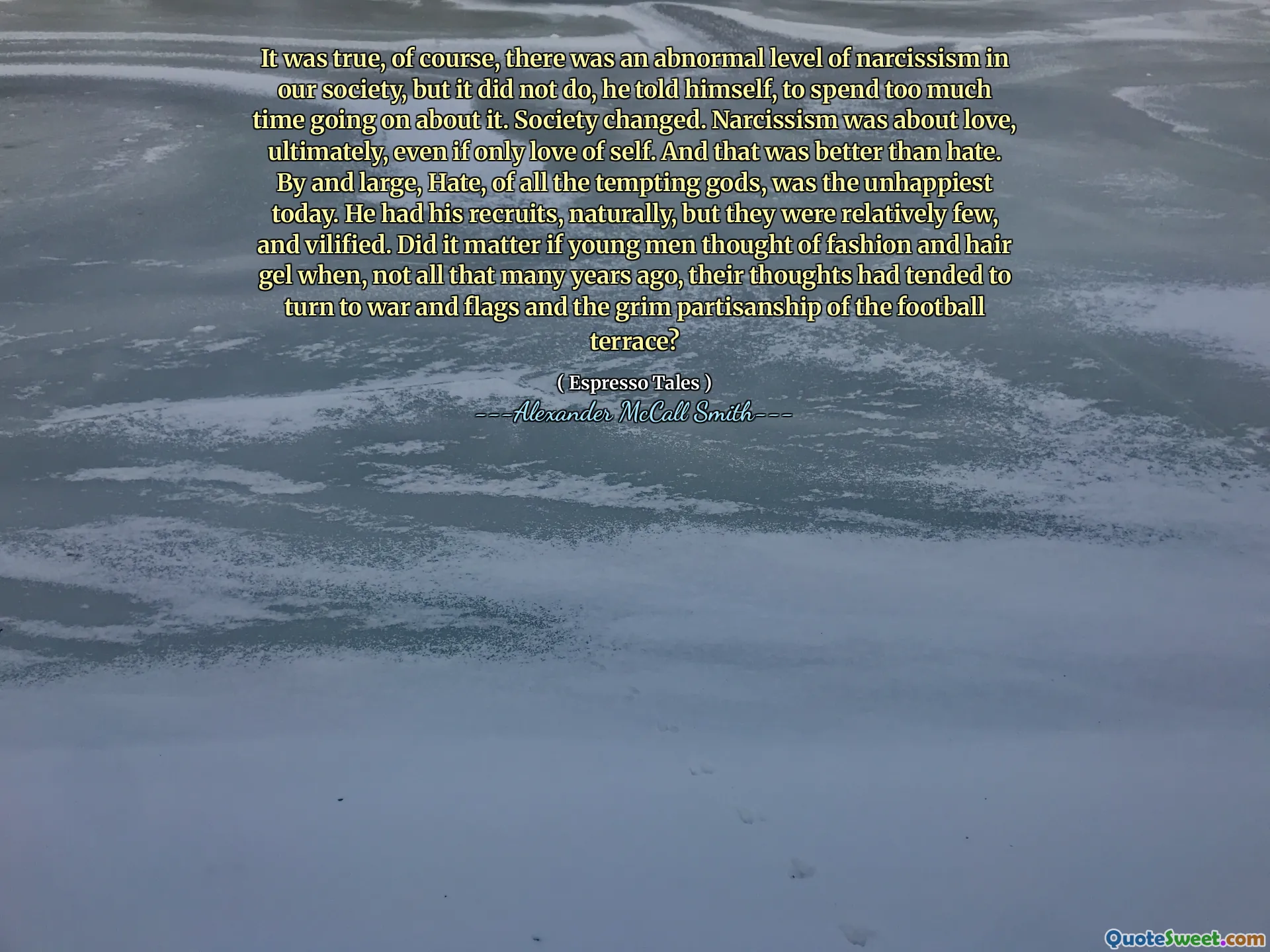
It was true, of course, there was an abnormal level of narcissism in our society, but it did not do, he told himself, to spend too much time going on about it. Society changed. Narcissism was about love, ultimately, even if only love of self. And that was better than hate. By and large, Hate, of all the tempting gods, was the unhappiest today. He had his recruits, naturally, but they were relatively few, and vilified. Did it matter if young men thought of fashion and hair gel when, not all that many years ago, their thoughts had tended to turn to war and flags and the grim partisanship of the football terrace?
The protagonist reflects on the pervasive narcissism in contemporary society, acknowledging that while it is alarming, dwelling on it excessively is unproductive. He suggests that at its core, narcissism represents a form of love, primarily self-love, which, in contrast to hate, is a relatively positive force. Hate is seen as a less popular and less fulfilling sentiment in modern times, even if it still has its followers.
He considers the shift in focus among young men from aggressive ideologies like war and partisanship to cares more aligned with personal image and fashion. This change, he argues, indicates a societal evolution where the embrace of individualism and self-expression has replaced some of the more divisive attitudes of the past, suggesting a move towards a more benign preoccupation with self, rather than a harmful obsession.











